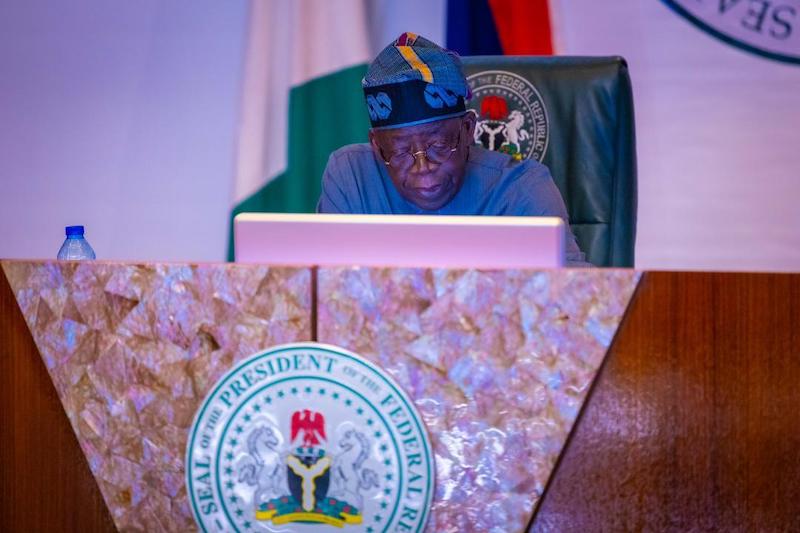VAM News Update
President Bola Tinubu has promised to honour all the foreign exchange obligations that Nigeria has entered into through forward contracts.
Forward contracts are financial agreements where two parties agree to exchange a specified amount of one currency for another currency at a predetermined future date and exchange rate.
The Central Bank of Nigeria (CBN) initiated agreements with Nigerian businesses to sell forward contracts, which essentially promised the businesses a fixed amount of dollars at a predetermined price in the future. These contracts allowed the businesses to open Letters of Credit (LCs), which are a form of payment guarantee issued by banks on behalf of the importers.
With the assurance of receiving the promised dollars from the CBN, the businesses utilized these LCs to import goods from foreign suppliers.
The expectation was that when the goods arrived, the CBN would release the dollars to the importers, allowing them to fulfill their payment obligations to the suppliers. This system ensured a smooth flow of imports and facilitated international trade for Nigerian businesses.
However, since February 2023, the CBN has been unable to fulfill its promises and has not provided the businesses with the dollars they were allocated under the forward contracts. As a result, there is now a significant backlog of approximately $3 billion owed to these businesses. This means that the businesses are unable to fulfil their obligations to their foreign suppliers, leading to disruption in the supply chain and potentially damaging their relationships with international partners.
The consequences of the CBN’s failure to meet its commitments are not limited to domestic businesses alone.
Foreign investors also have a substantial backlog of approximately $10 billion owed to them by the CBN. This impacts the confidence and trust of foreign investors in the Nigerian economy, potentially deterring future investments and harming economic growth.
Moreover, the shortage of foreign exchange liquidity resulting from this failure has forced the CBN to suspend various transactions.
These include payments for school fees and Personal Travel Allowance (PTA) applications, causing inconvenience and financial difficulties for individuals who rely on these services.
Overall, the CBN’s failure to fulfil its promises has had significant financial consequences for the businesses involved, leading to a backlog of owed payments and disruptions in international trade relationships. This has also negatively impacted the broader economy’s stability, with suspended transactions and a potential decrease in foreign investor confidence. Resolving this issue and restoring trust in the CBN’s ability to honour its commitments will be crucial for the recovery and growth of the Nigerian economy.
To address this huge Forex backlog, President Bola Tinubu at the 29th edition of the Nigeria Economic Summit Group (NESG) announced that “consistent with our commitment to enshrining fairness and the rule of law in our country, this government will uphold the sanctity of every legitimate contract.
He said: “Specifically, as it relates to foreign exchange obligations of the government, all forward contracts that the government has entered will be honoured and a framework has been put in place to ensure that these obligations are met in due course.”
Tinubu also disclosed that a framework has been established to ensure that the government meets its foreign exchange obligations as stipulated in the contracts.
An official of the Central Bank of Nigeria (CBN) who was at the event said, “This framework will likely include policies, procedures, and financial resources to ensure the obligations are met as agreed upon.”
The president in his address to the NESG, said there must be consumer credit, adding that the scheme would have to come to effect as soon as possible.
He said:
“I task my team and my colleagues to build this programme and develop it now. We cannot talk about anti-corruption when you have to look for cash to buy a car when there’s no mortgage for homeownership.
“Where do you expect a civil servant to have N3 million or N5 million for housing without corruption? If you don’t change and plan the welfare of your judiciary and you ask them to be fair, render justice with mercy, with a hungry stomach.
Tinubu noted that Nigeria aims to achieve a $1 trillion economy by 2026 and $3 trillion within this decade through sustainable and competitive growth.




